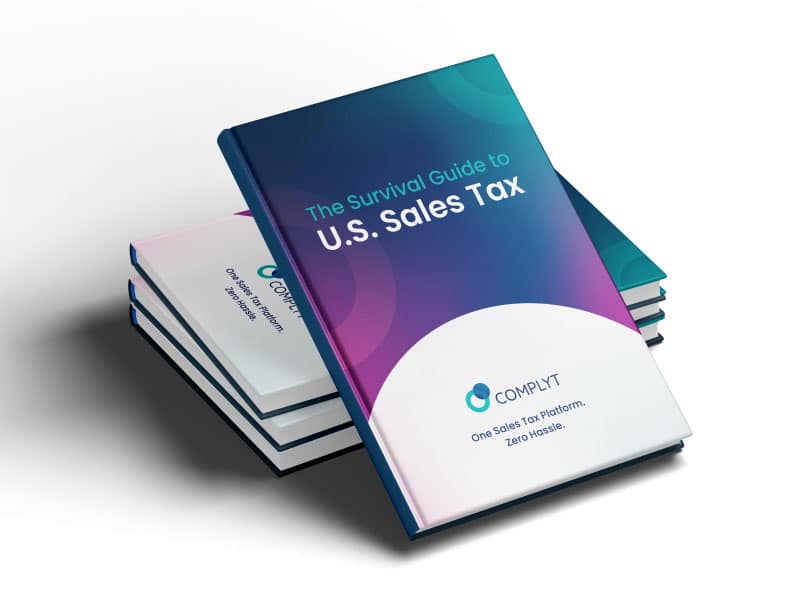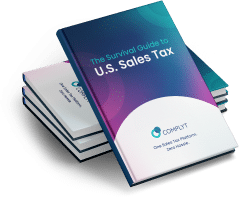What is the sales tax rate in Kansas?
In Kansas, the state sales tax rate is 6.5%. However, local jurisdictions (such as cities and counties) can impose additional sales tax, which means the total sales tax rate can be higher in some areas. Local sales tax rates can vary significantly, so it’s essential for businesses to be aware of the specific rates that apply in their area.
In Kansas, the combined sales tax rate (state and local) can be as high as 10.5%, depending on the location. It’s crucial for businesses to calculate the correct sales tax rate for their transactions, as undercharging or overcharging customers can lead to complications with tax compliance.
The Kansas Department of Revenue provides a sales tax rate lookup tool to help businesses determine the correct rate for specific locations. This tool allows users to search for the total sales tax rate by entering the address or jurisdiction where the sale is taking place.
In Kansas, sales tax is applied to the retail sale of tangible personal property and certain services. It’s essential for businesses to be aware of the items and services that are subject to sales tax to ensure proper compliance with state tax regulations.
When should your business collect Sales Tax in Kansas?
Businesses are required to collect sales tax in Kansas if they have a sales tax nexus in the state. A sales tax nexus is a connection between a business and a state that requires the business to collect and remit sales tax on sales made within the state. In Kansas, a sales tax nexus can be established through several factors, including:
- Physical presence: Having a physical location, such as a store, office, or warehouse in Kansas.
- Employees: Having employees in Kansas, including sales representatives, agents, or contractors.
- Inventory: Storing inventory in Kansas, even if it’s in a third-party fulfillment center or warehouse.
- Economic nexus: Exceeding the state’s economic nexus thresholds in terms of sales revenue or transaction volume.
Businesses that meet any of these criteria are generally required to collect and remit sales tax in Kansas. It’s essential for businesses to understand their nexus status and the specific sales tax regulations that apply to them to ensure compliance with Kansas tax laws.
Kansas Physical Sales Tax Nexus
In Kansas, a physical sales tax nexus is established when a business has a tangible connection to the state. Here are some of the factors that can create a physical nexus in Kansas:
- Physical location: Operating a store, office, or warehouse in Kansas.
- Employees: Having employees, agents, or contractors in Kansas.
- Inventory: Storing inventory in Kansas, even if it’s held by a third party.
- Events: Attending or participating in trade shows, fairs, or other events in Kansas.
- Affiliates: Having affiliates in Kansas, such as marketing partners or representatives.
- Vehicle use: Regularly using vehicles in Kansas, including delivery trucks, sales vehicles, or service vehicles.
If your business has any of these connections to Kansas, you likely have a physical sales tax nexus in the state and are required to collect and remit sales tax. Ensure you register for a sales tax permit and comply with the state’s sales tax regulations.
Kansas Economic Nexus Threshold: Revenue, Thresholds and Transactions
In Kansas, an economic sales tax nexus is established when a business exceeds the state’s economic nexus thresholds, even if they have no physical presence in the state. The thresholds for Kansas are:
- Revenue: Making more than $100,000 in sales in Kansas in the current or previous calendar year.
- Transactions: Having more than 200 separate transactions in Kansas in the current or previous calendar year.
Businesses that exceed either of these thresholds are required to register for a sales tax permit, collect sales tax on their sales in Kansas, and remit the tax to the state.
It’s essential to monitor your sales and transactions to determine if you have an economic nexus in Kansas and ensure compliance with the state’s sales tax regulations.
Which services are taxable in Kansas?
In Kansas, certain services are subject to sales tax. Some of these services include:
- Advertising services
- Cleaning and maintenance services
- Computer software services
- Data processing services
- Landscaping services
- Personal property services (e.g., laundry, dry cleaning, etc.)
- Pest control services
- Repair and maintenance services
- Security services
- Telecommunication services
- Utility services
This list is not exhaustive, and it’s essential for businesses to be aware of the specific services that are taxable in Kansas. If your business provides services in Kansas, check the state’s sales tax regulations to ensure you’re collecting and remitting the appropriate amount of sales tax.
Kansas Sales Tax on Products: How to Calculate What Your Business Should be Charging
Calculating sales tax in Kansas for tangible products can be somewhat complex due to the state’s tax structure. Kansas has a statewide base sales tax rate, but local jurisdictions like cities and counties may impose additional sales tax rates. As a result, the total sales tax rate can vary from one location to another. To calculate the correct sales tax to charge:
- Identify the correct rate: Determine the base state sales tax rate and any additional local rates that apply based on the destination of the sale. You can use the Kansas Department of Revenue’s tax rate lookup tool to find the correct rate for your customer’s location.
- Calculate the tax: Multiply the total price of the products by the combined sales tax rate to calculate the amount of sales tax to collect. For example, if the total sales tax rate is 8.25% and the sale amount is $100, the sales tax would be $8.25 ($100 * 0.0825).
- Collect the tax: Add the calculated sales tax amount to the invoice or receipt, and collect it from the customer.
- Remit the tax: File your sales tax returns and remit the collected sales tax to the Kansas Department of Revenue.
It’s essential to stay updated on any changes in sales tax rates and regulations, as they may affect your business.
How much is Kansas clothing tax?
In Kansas, the sales tax rate for clothing is the same as the general sales tax rate. The state imposes a base sales tax rate, and local jurisdictions may impose additional rates. As a result, the total sales tax rate for clothing can vary depending on the location of the sale.
When selling clothing in Kansas, it’s important to apply the appropriate sales tax rate based on the customer’s location. You can use the Kansas Department of Revenue’s tax rate lookup tool to find the correct rate.
Kansas Online Sales Tax: Are SaaS and Digital Services Taxable?
In Kansas, the taxability of SaaS (Software as a Service) and digital services depends on the nature of the transaction. Generally, sales of tangible personal property and certain services are subject to sales tax in Kansas.
When it comes to SaaS, it is considered a service rather than tangible personal property. Therefore, it is generally not subject to sales tax. However, if the SaaS solution includes the transfer of tangible personal property (e.g., software CDs), the transaction may become taxable.
Digital services, such as streaming or digital downloads, may be taxable if they involve the transfer of digital goods that are considered tangible personal property under Kansas law.
SaaS Sales Tax Kansas: What should I be charging?
As mentioned above, SaaS is generally considered a service and not subject to Kansas SaaS sales tax. However, it’s important to examine the specifics of your transaction. If your SaaS offering involves the transfer of tangible personal property, you may need to charge sales tax.
How can a business get a sales tax permit in Kansas?
To collect sales tax in Kansas, businesses must first obtain a sales tax permit from the Kansas Department of Revenue. Fortunately it’s a simple process. You can
register for a permit online by visiting the Kansas Department of Revenue’s website and complete the online registration process. You will need information such as your business name, address, ownership details, and EIN or SSN. But all in all you’ll be ready to start charging sales tax in no time at all.
Collecting Sales Tax in Kansas as a Business
As a business owner, once you have your sales tax permit in Kansas, you are legally required to collect the appropriate sales tax from your customers. When collecting sales tax in Kansas, keep the following points in mind:
Determine the sales tax rate: The state of Kansas has a base sales tax rate, but local jurisdictions (cities and counties) may impose additional rates. Ensure you’re charging the correct combined rate based on your business location or the delivery destination.
Apply the tax to taxable items: Not all products and services are taxable in Kansas. Familiarize yourself with what’s taxable and what’s not.
Collect tax at the time of sale: Collect sales tax at the point of sale, whether it’s in-person, over the phone, or online.
Keep accurate records: Maintain records of all transactions, including sales receipts, invoices, and tax collected. This will be crucial when filing your sales tax return.
Remit the tax to the state: Submit your sales tax returns and remit the collected taxes to the Kansas Department of Revenue by the due dates.
Kansas Tax Return Due Dates Explained
The Kansas Department of Revenue requires businesses to file sales tax returns on a regular basis. The frequency of your sales tax filings depends on your sales volume:
- Monthly filers: Due on the 25th of the month following the reporting period.
- Quarterly filers: Due on the 25th of the month following the end of the quarter.
- Annual filers: Due on January 25th of the following year.
What is the required frequency for sales tax returns in Kansas?
The Kansas Department of Revenue assigns filing frequencies based on the average monthly tax liability:
- Monthly: Average tax liability of $320 or more per month.
- Quarterly: Average tax liability of $80 to $319.99 per month.
- Annual: Average tax liability of less than $80 per month.
Your assigned filing frequency may be adjusted based on your actual tax liability.

